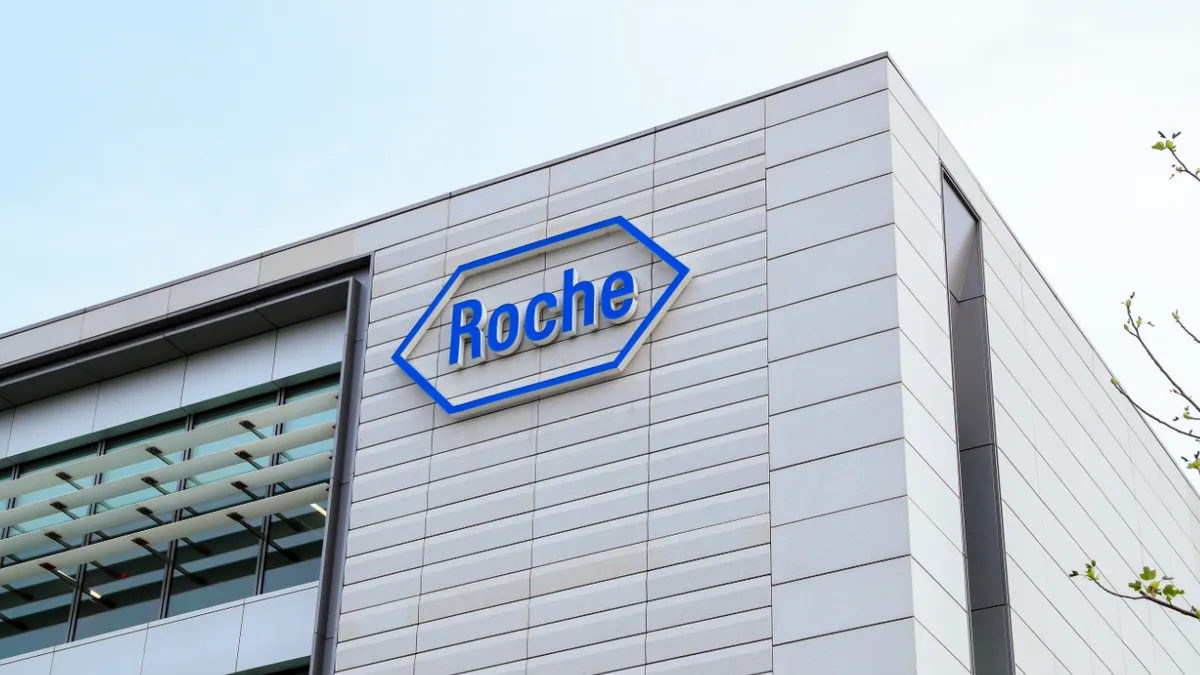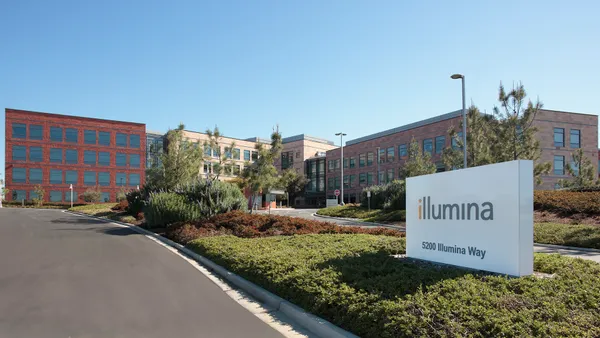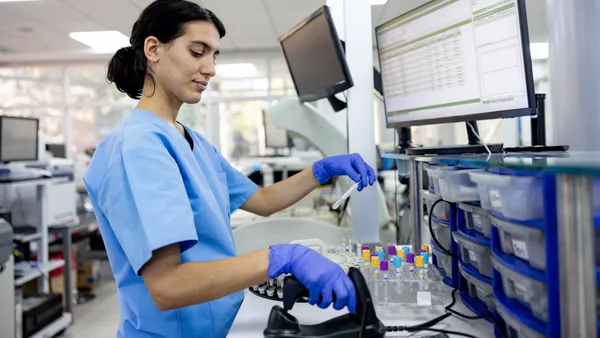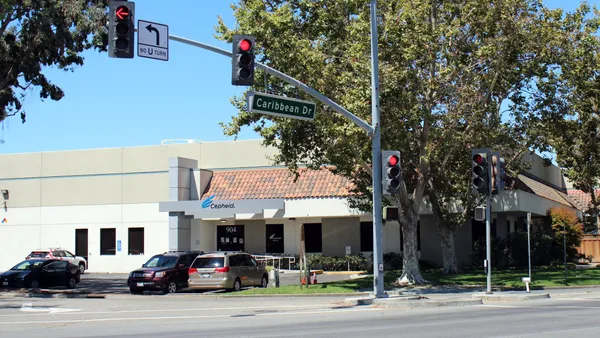Dive Brief:
- Roche received 510(k) clearance for a test that could help cut the time it takes to diagnose Alzheimer’s disease.
- Currently, physicians diagnose Alzheimer’s by running tests that exclude other potential causes of cognitive impairment, but the process can take years. With treatments for early Alzheimer’s coming to market, demand for techniques that accelerate diagnosis could increase.
- Roche won 510(k) clearance for one cerebrospinal fluid (CSF) test last year and secured the green light to start selling a second diagnostic this week.
Dive Insight:
Biogen and Eisai’s lecanemab recently outperformed a placebo on measures of cognition and daily function in a clinical trial, and could win full approval in the U.S. next week, Biogen said in a statement earlier this month. Another similar drug candidate, Eli Lilly's donanemab, has also improved outcomes in a late-phase clinical trial.
The developments suggest people with early symptomatic Alzheimer’s may soon have access to drugs that could slow the progression of the disease. One challenge for the healthcare system will be identifying patients who may benefit before their disease progresses too far for the drugs to be effective.
Roche, which is developing its own Alzheimer’s drug candidates, has tasked its diagnostics division with developing tests that help to accelerate diagnosis. The FDA cleared the first test last year. That test uses Roche’s Elecsys immunoassay system to compare the ratio of beta-amyloid and phospho-tau, two proteins that are implicated in Alzheimer’s.
Now, Roche has received clearance for a second test that compares the ratio of beta-amyloid and total tau. The test is cleared for use in adults aged 55 years and older who are being evaluated for Alzheimer’s.
According to Roche, the findings of its CSF tests are similar to amyloid PET scan imaging. PET scans detect amyloid in the brain, facilitating the diagnosis of Alzheimer’s, but their cost and availability limit access. Roche plans to further improve the diagnostic process by developing an assay that measures Alzheimer’s biomarkers in blood samples.











